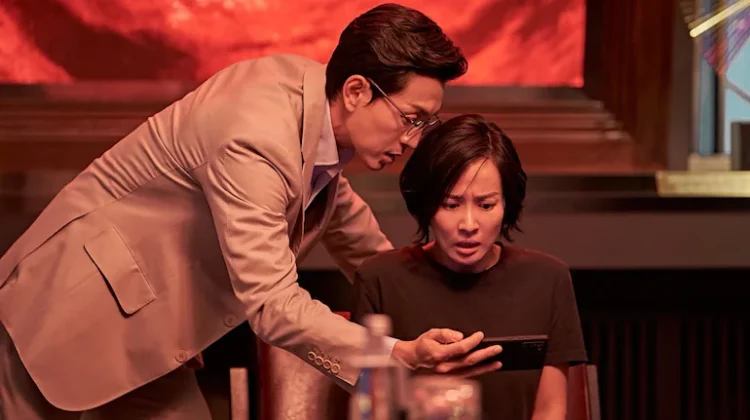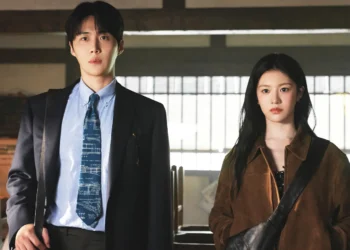Murder Report pulls viewers into a suffocating psychological showdown that unfolds entirely within the walls of a single space. Directed by Cho Young-jun and released in theatres on November 7, this high-tension drama stars Cho Yeo-jeong and Jung Sung-il in a gripping duel of intellect and morality. What begins as a straightforward interview swiftly mutates into a dangerous game, exposing ambition, guilt, and the fragility of truth.
Story
Set almost exclusively in a quiet hotel suite, the plot centers on journalist Seon-ju (Cho Yeo-jeong) and psychiatrist Yeong-hun (Jung Sung-il), who openly admits to killing eleven people. Hoping for the story that will change her career, Seon-ju agrees to hear his account. But Yeong-hun’s calm, measured delivery draws her into an unsettling rhythm, eroding her confidence line by line.
The narrative thrives on stillness—pauses, glances, and moments of silence that speak louder than any outburst. The confined setting becomes both stage and prison, symbolizing the tightening trap the journalist finds herself in. The more she listens, the more the line between professional curiosity and personal obsession blurs, leaving her locked in a psychological struggle she didn’t anticipate.
Performances
Cho Yeo-jeong delivers a layered portrayal of ambition colliding with vulnerability. Her transformation from composed professional to emotionally undone is subtle yet devastating. Jung Sung-il’s performance is equally magnetic, his calm demeanor masking something deeply unsettling.
Together, they generate a tension so palpable that the hotel room almost shrinks around them. Without a large supporting cast to dilute focus, their on-screen chemistry becomes the heartbeat of the film—volatile, mesmerizing, and impossible to look away from.
Behind the Scenes
Cho Young-jun’s direction is meticulous, building suspense without relying on graphic violence. His use of light, shadow, and silence turns the small set into a character of its own. Every pause is deliberate, every close-up intentional, drawing the audience deeper into the psychological warfare at play.
The storytelling is divided into three distinct acts, each visually marked by a change in color palette, offering subtle clues to the shifting dynamics between the characters. This stylistic choice adds thematic weight without distracting from the intimacy of the dialogue-driven plot.
Final Verdict
Murder Report proves that fear doesn’t have to come from bloodshed—it can arise from words, silence, and the invisible battle for control. With sharp writing, deliberate pacing, and powerhouse performances, this Korean psychological thriller is a masterclass in restraint and atmosphere.
For those seeking a tense, thought-provoking drama that lingers long after the credits roll, Murder Report delivers in spades. It’s less about the murders themselves and more about the perilous territory between truth and manipulation—a story that reminds us that sometimes the most dangerous battles happen behind closed doors.























